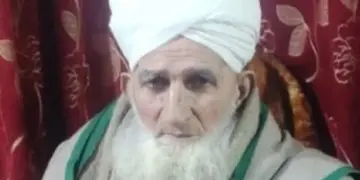By: Dr Anayat Mir
Behind so many closed doors in our towns and villages, there live families who look perfectly ordinary from the outside — but inside, they are drowning in invisible battles no one ever named.
There lives a family everyone knows them — not for their laughter, not for their success, but for the endless turmoil that leaks through their walls into the gossip of neighbours and relatives.
Behind this tragedy is a truth we often refuse to confront: untreated mental illness does not just hurt an individual — it destroys entire families, generation after generation.
In this particular home, a father struggles with severe impulsivity — an undiagnosed, unmanaged attention-deficit/hyperactivity disorder (ADHD) that has grown more volatile with age. His promises are forgotten as soon as they are made; his anger, unchecked, often turns physical. Not long ago, one morning, in an explosion of blind rage, he struck his eldest son so hard that his head bled onto the same ground where he once crawled as a child asking for love.
By his side stands a mother who ruled the household with rigid routines and harsh discipline — her own mind chained by undiagnosed Obsessive-Compulsive Personality Disorder(OCPD). She wanted to protect her family from chaos, but her own fear of disorder crushed any chance for warmth.
The younger brother, carrying the same restless brain, chose a mask instead of help. He grew a beard, recited prayers, preached to others — but behind closed doors, his sinistral nature spilled out as manipulation, betrayal, and venomous lies.
Time and again, the eldest son — who has faced beatings, defamation, and betrayal — reached out for help. He begged relatives to step in, neighbours to mediate, even trusted religious leaders to counsel the family. Each time, he was met with polite excuses, empty advice, or worse silence.
In all these years, that son — now grown, shouldering responsibilities too heavy for any young man — never once heard the soft words every son deserves: “I am proud of you, my son… I stand beside you.”
He never felt a father’s gentle hand on his shoulder in support. Instead, he grew up under harsh eyes, harsh words, and blows that broke his heart but never his spirit.
Meanwhile, some so-called ‘friends’, psychologists by profession, smelled the festering wounds behind their doors. They posed as healers but fed on the drama, exploiting their secrets, selling their pain as gossip disguised as concern.
And so the family bleeds.
Children lose focus at school. Marriages are rushed and ruined. Careers collapse under the burden of constant domestic unrest. Trust and love, the very foundations of a home, turn to dust — and the entire town watches from a far, shaking their heads, wagging their tongues, but never lifting a hand to stop the pain.
Why must we accept this?
Why must we label serious neuropsychological conditions as ‘bad behaviour’ or ‘lack of values’?
Why must our mosques and community halls stay silent on real mental health, while we lecture endlessly on rituals and appearances?
Why must a family cry for help for decades, yet never receive a professional diagnosis, therapy, or community support?
This is not just their tragedy. It is a mirror of how we, as a society, fail families when we turn mental illness into gossip instead of treatment.
A Plea to All of Us
If you see impulsivity, chronic neglect, or rigid control destroying a family — guide them gently to professional help.
If you hold influence as a relative, neighbour, or community leader — intervene wisely and practically, not with hollow lectures.
If you suspect a loved one has ADHD, OCPD, or any other disorder — remember: it is a medical issue first, not a moral failure.
If you are a mental health professional — treat each case with honesty and ethics, not exploitation for personal gain.
A family still bleeds among us today because we chose silence. Let this column not be just another piece to discuss over tea — let it be a wake-up call to stop losing generations to untreated minds and unspoken pain. May we all find the courage to help — not just to talk.
The writer is MD, PGDMH and Associate Professor, GHMC Kathua




